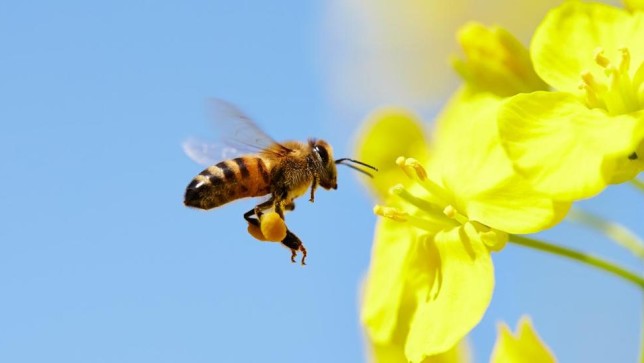Some just published research in the journal Science completely demolishes claims that the impact of pesticides is declining and that GM crops are contributing to this positive trend, GMWatch reported.

Source: GMWatch By Claire Robinson and Jonathan Matthews
In fact, the new study shows that not only is the toxic impact of pesticides increasing in the US but that GM crops are no better than conventional non-GM crops in that regard. As The Guardian notes in its report on the study by German researchers, using US government data, it “shows that the toxic impact of pesticides used on genetically modified crops remains the same as conventional crops, despite claims that GM crops would reduce the need for pesticides”.
And it quotes the lead researcher Prof Ralf Schulz, of the University Koblenz and Landau in Germany, as saying, “GM crops were introduced using the argument that they would reduce the dependency of agriculture on chemical pesticides. This is obviously not true if you look at toxicity levels.”
Check the toxicity, not just the quantity
Debates about the effects of pesticides on humans and the environment have been dominated by the comparison of use rates (e.g. kilograms per hectare) or applied amounts (e.g. kilograms per year). But these weight-based measures are not necessarily informative because the toxicity of different pesticides varies hugely. In other words, the toxicity will depend not just on amount applied, but which pesticides are used.
That is why when the researchers looked at the type, amount, and toxicity of pesticides applied in the US over the last 25 years, they found that despite decreasing total amounts applied, toxicity — in particular to insects and aquatic invertebrates — has increased substantially.
With regard to GM crops, the researchers report increasing toxicity of applied pesticides to aquatic invertebrates and pollinators in GM maize and to terrestrial plants in herbicide-tolerant soybeans since approximately 2010.
The researchers call the toxicity arising from pesticides applied to crops the “Total Applied Toxicity (TAT)”.
GM Bt crops
In the most widely grown GM crop that produces a Bacillus thuringiensis (Bt) insecticidal toxin, maize, the insecticide TAT increased. Considering only data for maize, of which 79% in the US in 2016 was Bt hybrids, TAT increased for both aquatic invertebrates (mainly because of pyrethroids) and terrestrial pollinators (mainly because of neonicotinoids) at the same rate observed for US agriculture as a whole.
The researchers verified that the toxicity per hectare of insecticides applied to Bt maize is equal to that for non-Bt maize. They suggest that the increasing insecticide TAT may be a result of preemptive, possibly unnecessary applications or pest resistance to the Bt toxins in Bt maize.
The authors reach a devastating conclusion for proponents of GM Bt crops: “Our analysis suggests that claims of reduced chemical insecticide use in US Bt crops simply reflect the considerably lower application rates required for more recently developed, more toxic insecticide classes,” whereas the TAT for pollinators and for aquatic invertebrates both continue to increase.
This finding will come as no surprise to regular readers of GMWatch as we flagged up flaws in the claims of reduced need for insecticides with GM crops that researchers were pointing to in 2012 and again in 2015, based on the failure to take account of rising toxicity in the insecticides applied.
Herbicide-tolerant GM crops
The researchers note that herbicide use has increased with the spread of herbicide-tolerant GM crops, which has led to a strong increase in the use of glyphosate. The TAT to terrestrial plants has increased steadily since approximately 2008 for herbicides in herbicide-tolerant soybeans, likely in response to glyphosate resistance.
While the researchers cite previous research as showing a downward trends for GM soybean herbicide toxicity to humans, this is false because the paper cited assumes a “relatively low chronic toxicity” for glyphosate. This assumption has been blown out of the water by the success of the lawsuits in the US, which blame exposure to Roundup (a glyphosate-based herbicide) for causing cancer. It is also belied by numerous studies attesting to other long-term toxic effects of glyphosate-based herbicides, including birth defects, neurological disease and DNA damage.
The focus of the paper is firmly on environmental effects, but the researchers point out that there are implications for human health, too: “Because 61% of US drinking water originates from surface waters, according to the EPA, TAT-based pesticide evaluations may also benefit human health evaluations.”
The researchers recommend “a system-centric view” of pest management in agriculture and suggest that organic agriculture can provide one of several useful strategies.
GMWatch agrees with the “system-centric” approach and notes that it is diametrically opposed to the reductionist approach of gene editing proponents, who claim that pesticide use can be reduced by altering individual genes in individual crops. An agriculture that relies on such supposed solutions is doomed to repeat the mistakes of the first-generation of GM crops, which are clearly laid out in the new paper.



















Our utility company sprays glyphosate along its power lines which run through our neighborhood alleyways. The overspray or drift has affected the entire neighborhood, destroying hedges, shrubs, trees, gardens, pets and yards. Not to mention the air we breathe and the ground water.
We need an ordinance to stop the use of glyphosate in our community.